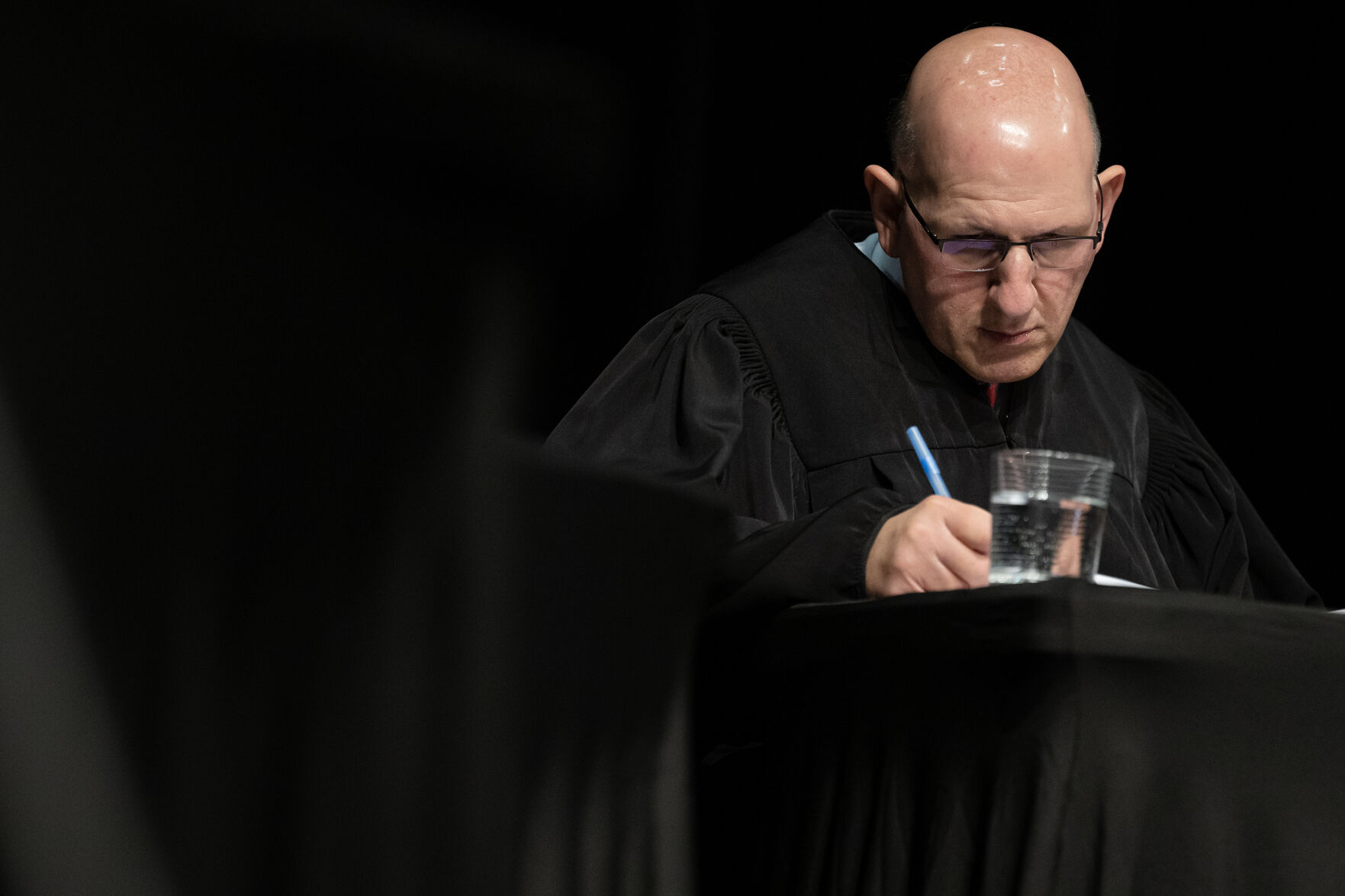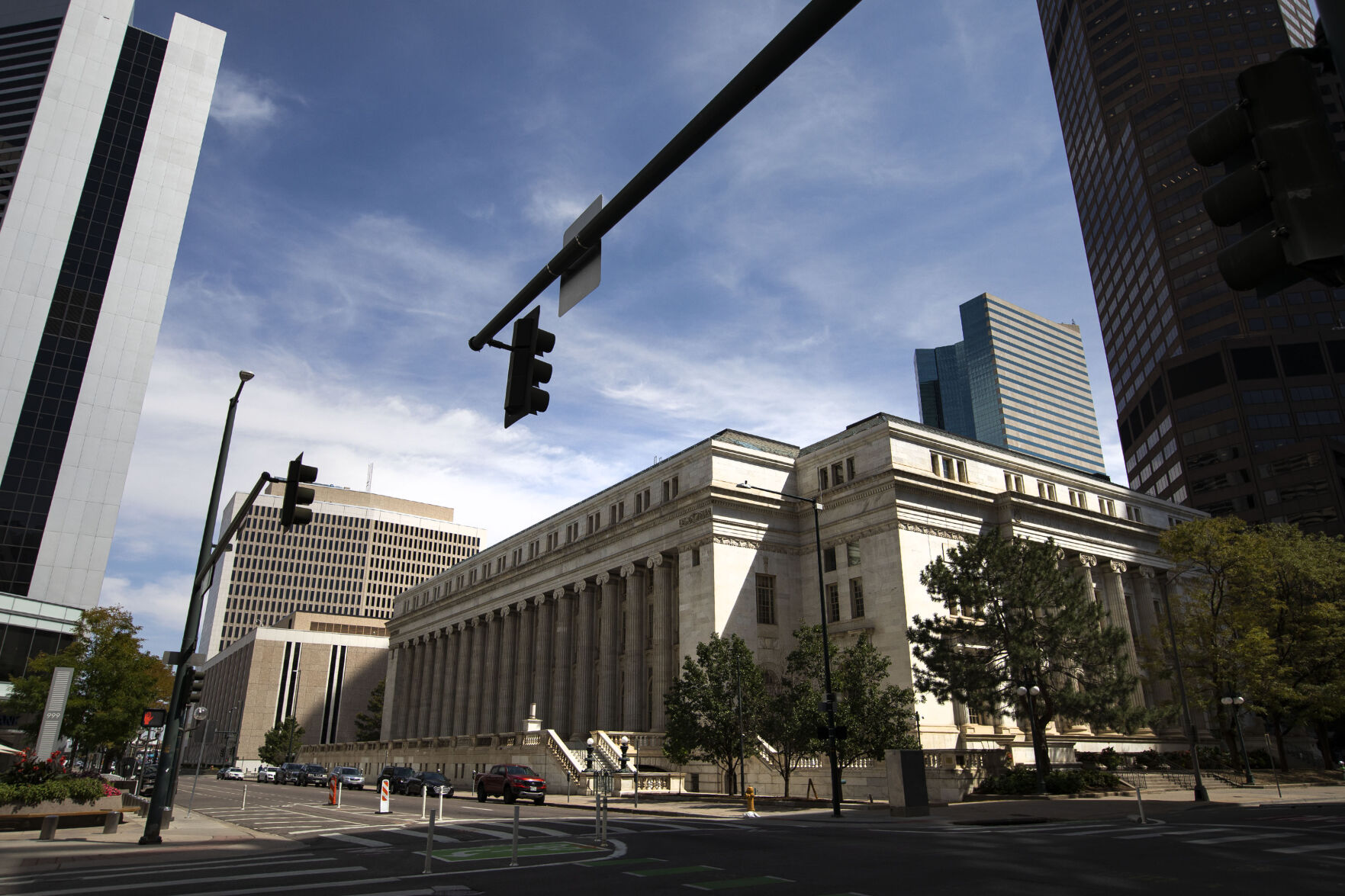SCOTUS puts end to Trump disqualification effort, state Supreme Court returns for arguments | COURT CRAWL

Welcome to Court Crawl, Colorado Politics’ roundup of news from the third branch of government.
The U.S. Supreme Court clarified that Colorado and other states may not disqualify insurrectionist candidates for federal office using their elections procedures, and the state Supreme Court is back today to hold oral arguments.
SCOTUS puts states in their place
? In a case that began in Denver District Court in September and ended at the nation’s highest court last week, the U.S. Supreme Court concluded the constitutional provision barring insurrectionist candidates from office doesn’t, in fact, let states adjudicate whether a federal candidate is disqualified. The ruling reversed a 4-3 decision of the Colorado Supreme Court and ordered Donald Trump back onto Colorado’s presidential primary ballot (where, practically speaking, he had been listed ever since he appealed in January).
? Readers will no doubt find plenty of commentary about the decision, and it will be the source of scholarship for decades to come. But for the Court Crawl’s purposes, it’s most notable that the Supreme Court’s ultimate position – states can’t disqualify – echoed one of the dissenting members of Colorado’s Supreme Court: Justice Carlos A. Samour Jr.
? “I’d say the argument was Samour-plus: His concern was that Colorado hadn’t afforded Trump enough process,” said Washington University associate law professor Andrea Katz. “The Supreme Court built on this point but also added something more like a ‘constitutional structure’ argument: If Colorado could decide this, so could the other states and that could create chaos. It was quite explicitly a consequences-based argument which, distinctively, an originalist court claims not to do.”

State Supreme Court arguments
? Beginning this morning, the Colorado Supreme Court will hear oral arguments in five cases. They are:
Education ReEnvisioned BOCES v. Colorado Springs School District 11: Can school district co-ops locate facilities in districts that are not part of their group and do not consent to the arrangement?
Sanders v. People: Should a man convicted of a road rage shooting receive a new trial because his trial judge was the victim of a similar crime and refused to recuse herself?
Tarr v. People: Does it comply with the Fourth Amendment for Colorado to say, through state law, that suspected drunk drivers have automatically consented to a blood draw, even when they explictly try to revoke their consent?
Salah v. People: Does a man serving sex offender probation have a right to live with his sister and her infant son?
Hamilton v. Amazon.com Services LLC: Must Amazon include hours employees work on company holidays when calculating overtime pay?
Other Supreme Court news
? The Supreme Court censured ex-Adams County District Court Judge Robert W. Kiesnowski Jr. for acting as his relative’s lawyer in a criminal case while a sitting judge. Kiesnowski’s misconduct came weeks before he was scheduled to resign in response to other, unrelated misconduct.
? By 4-3, the justices made it easier for homeowners to file damage claims with their insurance companies beyond the deadlines in their policies.

? The Supreme Court concluded the state’s 25-year-old sex offender sentencing law does not require parole officials to consider all of the factors the U.S. Supreme Court has said are necessary when evaluating if a juvenile offender may be released. However, whether the law is unconstitutional is a call for the federal appeals court in Denver.
? The justices agreed to answer whether people who pursue motor vehicle-related personal injury lawsuits benefit from a weekend and holiday grace period at the end of their three-year filing deadline.
? An advisory committee for the Supreme Court has authorized a subcommittee to explore changes to the rules barring the unauthorized practice of law that would better accommodate new artificial intelligence legal tools.
Q&A with judicial advocacy group director
? For 45 years, the Colorado Judicial Institute has worked to advocate on behalf of the judiciary, inform the public about the courts and support the continuing education of judges. The group’s director, Jeff Rupp, spoke to Colorado Politics about CJI’s strategic plan, its independence from the judicial branch and potential areas of improvement. Here is an excerpt from the Q&A:
Colorado Politics: The CJI holds a gala every year where it honors judicial excellence (Colorado Politics’ parent company is a sponsor). From CJI’s perspective, what are some of the exemplary practices you’ve seen judges exhibit that you wish others would emulate statewide? And on the flip side, are there any trends or longstanding habits in the judiciary that CJI would discourage judges from perpetuating – again, in order to further the goals of judicial excellence and trust?
Jeff: Rupp: Yeah, there are several exemplary traits that we see in the nominations each year. It goes beyond what you typically see in what would be good or exemplary performance evaluations conducted by the performance commissions, where they look at legal knowledge and management of one’s docket and demeanor and that kind of thing. …
There is a story I’ll share about one of our awardees from last fall, (Adams County Court) Judge Mariana Vielma. Apparently, there was a heard-of-hearing defendant in the courtroom and when the judge recognized the defendant was having difficulty with the hearing device he was using, Judge Vielma actually left the bench to stand next to the man to ensure he could understand what was going on.

That’s really remarkable. How many judges would think to do that, much less actually do it? It’s the showing of the genuine human connection, the compassion and even a certain humility. Truly seeing somebody and the problem they’re having and going beyond, while maintaining the decorum of the courtroom.
On the flip side: lack of preparation. Not being willing to ask for help. We know some judges are overwhelmed with their dockets. They need to be able to ask for help. You can’t get overwhelmed and just slow down. Losing control of the courtroom, losing control of one’s temper, one’s patience. Harassment – we all know that’s what led to the changes in judicial discipline.
There’s one last thing and this is my own opinion. It’s interesting to me because I came to CJI without a background in the legal system – it’s not a negative trait, but it’s the question of how judges might insist on being addressed outside of the courtroom. We’re all so used to being deferential to judges, calling them “judge” or “justice,” but in settings outside the courtroom, I wonder about that.
Heard on appeal
? A Kit Carson County special district included language in its agreement with a healthcare provider that complied with the Taxpayer Bill of Rights. Therefore, it was not on the hook for roughly $8 million after it stopped appropriating money midway through the contract, the state’s Court of Appeals found.
In federal news
? Although it found an ex-prison employee hadn’t stated a viable claim, the U.S. Court of Appeals for the 10th Circuit launched into a heated critique of workplace diversity, equity and inclusion trainings, saying they could amount to racism and violate workers’ civil rights. The one Democratic-appointed judge sitting on the panel that heard the case believed such criticisms were uncalled-for.
? The 10th Circuit made it easier for federal prison officials to move incarcerated plaintiffs to facilities outside the circuit’s jurisdiction and moot prisoners’ constitutional rights cases.

? Jeffco Public Schools and two former administrators will face a civil jury trial over a middle school awash in sexual assault and harassment, a federal judge decided.
? A judge will determine whether to block a new U.S. Department of Defense rule that would cut millions of dollars in healthcare reimbursements to two children’s hospitals in Colorado, while boosting payments to other facilities across the country.
? After Colorado’s federal judges recused themselves, a New Mexico judge stepped in and dismissed a Fort Collins man’s allegations of bribery and forgery stemming from his own prior attempts to enforce a fraudulent arbitration agreement.
? After doing nothing to address motions that had been pending for roughly four years, a federal judge finally held a hearing to unstick an excessive force case involving a Westminster police officer who fatally shot a man in mental health crisis.
? A federal judge parsed the excessive force and First Amendment claims of protesters who were injured during the 2020 demonstrations in downtown Denver, and concluded some claims may proceed against the city and against one Aurora officer who allegedly shot a man with a beanbag.
Vacancies and appointments
? There are three candidates to succeed Denver Juvenile Court Presiding Judge D. Brett Woods, who stepped down amid a misconduct investigation: Denver Juvenile Court Magistrate Lisa M. Gomez, Adams County Magistrate Michal A. Lord-Blegen and Jefferson County Magistrate Blair Q. McCarthy.
Miscellaneous proceedings
? Colorado’s Judicial Department has debuted a new database that contains all precedent-setting opinions of the state Supreme Court and Court of Appeals, as mandated by a 2022 law. Later this year, the database will include non-precedent-setting Court of Appeals decisions, which are the majority of its work.
Court Crawl on break
? Court Crawl will take next week off and will return at the end of March.











